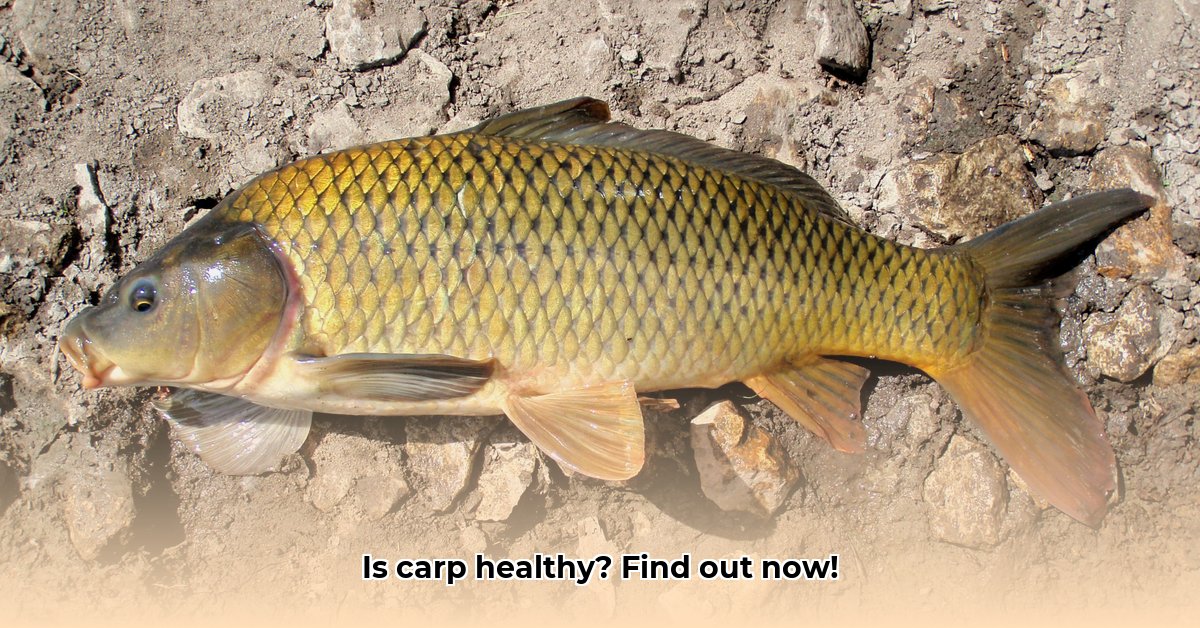Is carp healthy to eat? Absolutely! Often overlooked, this fish offers a wealth of nutritional benefits, and when sourced responsibly, it’s a remarkably sustainable option. For more healthy eating tips on the go, check out this helpful resource: Healthy eating guide. Let’s explore the compelling reasons to give carp a second look.
Nutritional Powerhouse: Unveiling Carp’s Health Benefits
Carp is packed with essential nutrients, making it a valuable addition to any diet. It’s an excellent source of high-quality protein, vital for muscle development, tissue repair, and overall bodily functions. Compared to other protein sources, carp holds its own:
- Complete Protein: Contains all nine essential amino acids.
- Omega-3 Fatty Acids: Supports cardiovascular health and cognitive function.
- Vitamin B12: Crucial for nerve function and red blood cell production.
- Phosphorus: Essential for bone health and energy metabolism.
- Selenium: An antioxidant that protects against cell damage.
Addressing Environmental Concerns: Carp’s Dual Role
The environmental impact of carp can be both positive and negative, depending on the context. In ecosystems where carp are not native, their populations can explode, leading to habitat degradation and competition with native species. However, responsible management and sustainable sourcing can mitigate these risks:
- Invasive Species Management: Targeted harvesting can help control carp populations in affected areas.
- Water Quality Improvement: Carp can consume excess algae and organic matter, potentially improving water clarity in some environments.
Opting for wild-caught carp from overpopulated areas or sustainably farmed carp minimizes environmental harm.
Sustainable Sourcing Strategies: Making Responsible Choices
Choosing sustainably sourced carp is crucial. Here’s what to look for:
- Certification: Seek out certifications from organizations like the Aquaculture Stewardship Council (ASC) or Best Aquaculture Practices (BAP).
- Origin: Prioritize carp sourced from farms with responsible water management and waste disposal practices.
- Recirculating Aquaculture Systems (RAS): These systems minimize water usage and pollution.
By supporting sustainable farms, you promote environmental stewardship, local economies, and ethical labor practices.
From Catch to Plate: Mastering Carp Preparation for Delicious Results
Concerns about carp’s taste often arise from improper handling and cooking. However, when prepared correctly, carp can be a flavorful and enjoyable dish.
Keys to Delicious Carp:
- Bleeding: Immediately after catching, bleed the carp to improve flavor.
- Filleting: Carefully fillet the carp to remove pin bones.
- Marinating: Use marinades to enhance flavor and tenderize the flesh.
- Cooking: Experiment with various cooking methods to find your preference.
Popular cooking methods include:
- Baking: Provides a moist and flavorful result.
- Grilling: Imparts a smoky flavor.
- Pan-frying: Creates a crispy exterior.
- Smoking: Adds a unique depth of flavor.
Consumer Guide: Making Informed Decisions
Choosing carp involves considering both its benefits and potential drawbacks. Here’s a quick guide:
Carp: Pros and Cons
| Pros | Cons |
|---|---|
| High in protein and omega-3s | Can be invasive in some ecosystems |
| Rich in vitamins and minerals | Taste can vary depending on preparation |
| Sustainable sourcing options exist | Requires careful selection of sustainable sources |
| Often more affordable than other fish | Contains pin bones that need to be removed |
Cooking ideas for Carp
| Cuisine | Dish Examples | Key Flavors |
|---|---|---|
| Central/Eastern Europe | Fried Carp (Czech Republic), Carp Stew | Paprika, Garlic, Onion |
| Asian | Carp in Sweet and Sour Sauce | Ginger, Soy Sauce, Vinegar |
| American | Smoked Carp Dip | Cream Cheese, Dill, Lemon |
Conclusion: Embracing Carp as a Sustainable and Nutritious Choice
Carp represents a nutritious and sustainable food option when responsibly sourced and properly prepared. As research continues to refine our understanding of its environmental impact and aquaculture practices, embracing carp can contribute to a more sustainable food system. Approach this often-misunderstood fish with an open mind and a willingness to experiment with different culinary techniques.
- Borosilicate Food Containers for Durable and Safe Everyday Use - January 30, 2026
- Borosilicate Glass Meal Prep Containers Offer Durable Oven-Safe Storage - January 29, 2026
- Glass Storage Bowls With Glass Lids Offer Superior Freshness - January 28, 2026










